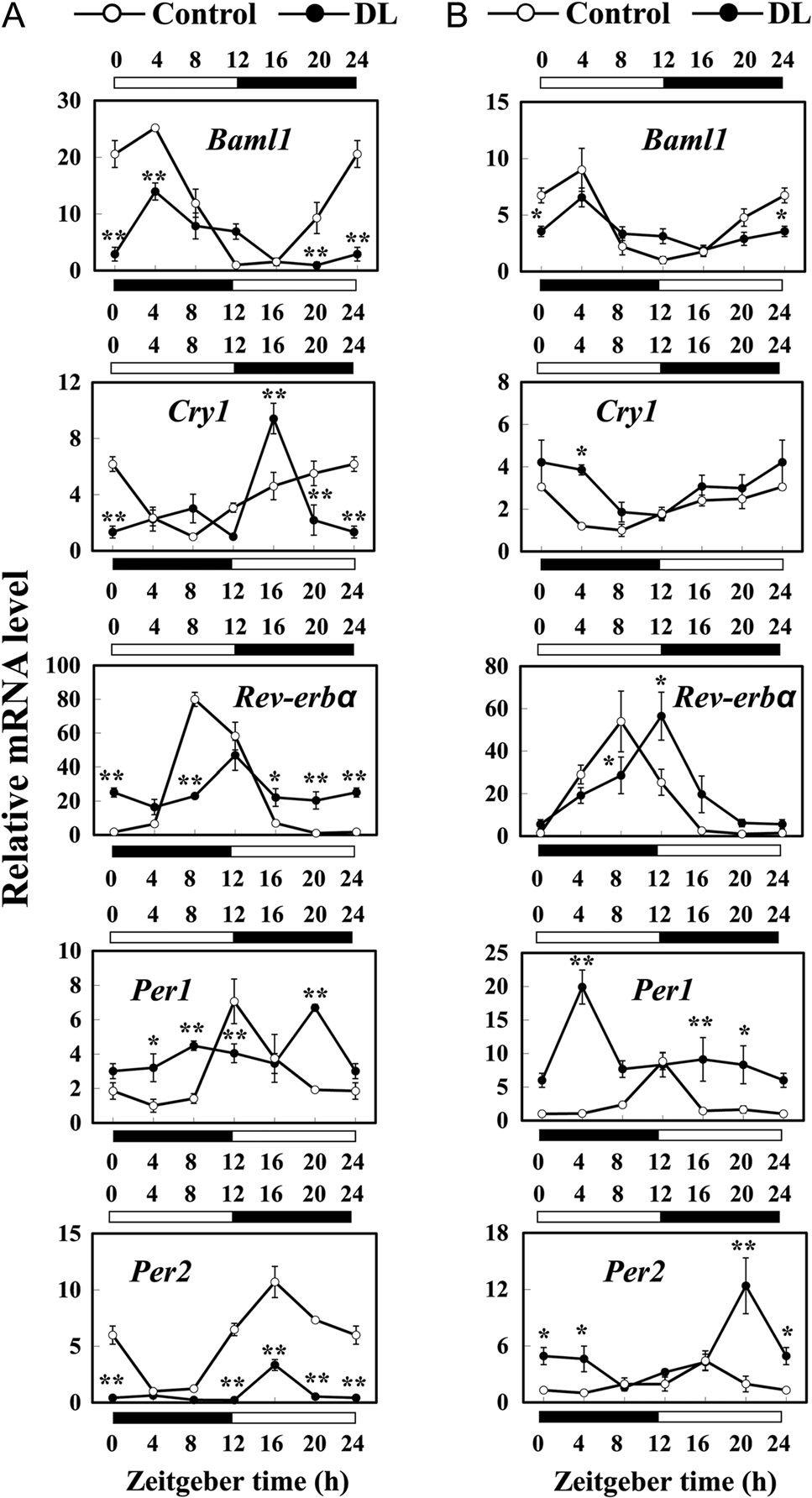博文
ABBS: Circadian rhythm and digestive function
|||
Liang Xu, Tao Wu, Haifeng Li, Yinhua Ni, and Zhengwei Fu
College of Biotechnology and Bioengineering, Zhejiang University of Technology, Hangzhou 310032, China
Acta Biochim Biophys Sin 2017, 49: 954–961; doi: 10.1093/abbs/gmx084
In mammals, behavioral and physiological rhythms are controlled by circadian clocks which are entrained by environmental light and food signals. However, how the environmental cues affect digestive tract's circadian clock remains poorly understood. Therefore, in order to elucidate the effect of light cue on the resetting of the peripheral clocks, we investigated the expressions of clock genes (Bmal1, Cry1, Rev-erbα, Per1, and Per2) and digestive function genes (Cck, Cck-1r, Sct, Sctr, and Ctrb1) in the pancreas and duodenum of rats after the light–dark (LD) cycle reversal for 7 days. We found that both the clock genes and digestive function genes exhibited a clear and similar daily rhythmicity in the pancreas and duodenum of rats. After reversal of the LD cycle for 7 days, the expressions of clock genes in pancreas, including Bmal1, Cry1, and Rev-erbα were affected; whereas the expression of Per1 gene failed to fit the cosine wave. However, in the duodenum the shifted genes were Bmal1, Rev-erbα, and Per2; in parallel, the Per1 gene expression also lost its circadian rhythm by reversal of the LD cycle. Therefore, the acrophases of the clock genes were shifted in a tissue- and gene-specific manner. Furthermore, the profiles of the digestive function genes, including Sctr and Ctrb1, were also affected by changes in LD cycle. These observations suggest that the mechanisms underlying the pancreatic and duodenal clocks are distinct, and there may be a potential linkage between the circadian clock system and the digestive system.

Individual reversal of the LD cycle affects clock genes in pancreas and duodenum
阅读原文: http://www.abbs.org.cn/arts.asp?id=4219
获取全文: abbs@sibs.ac.cn
相关论文:
1 Insight into the circadian clock within rat colonic epithelial cells
2 Biological clocks and the digestive system
3 Role of clock genes in gastrointestinal motility
4 Circadian regulation of epithelial functions in the intestine
5 Central circadian control of female reproductive function
6 Gastrointestinal physiology and digestive disorders in sleep
7 Molecular overlap of fly circadian rhythms and human pancreatic cancer
8 Gut clock: implication of circadian rhythms in the gastointestinal tract

https://blog.sciencenet.cn/blog-592748-1182951.html
上一篇:ABBS: SLC39A7 (Zip7) in human colorectal cancer
下一篇:ABBS: Hypoxia affects HUVECs in bone engineering